Ali 17 CROP.jpg
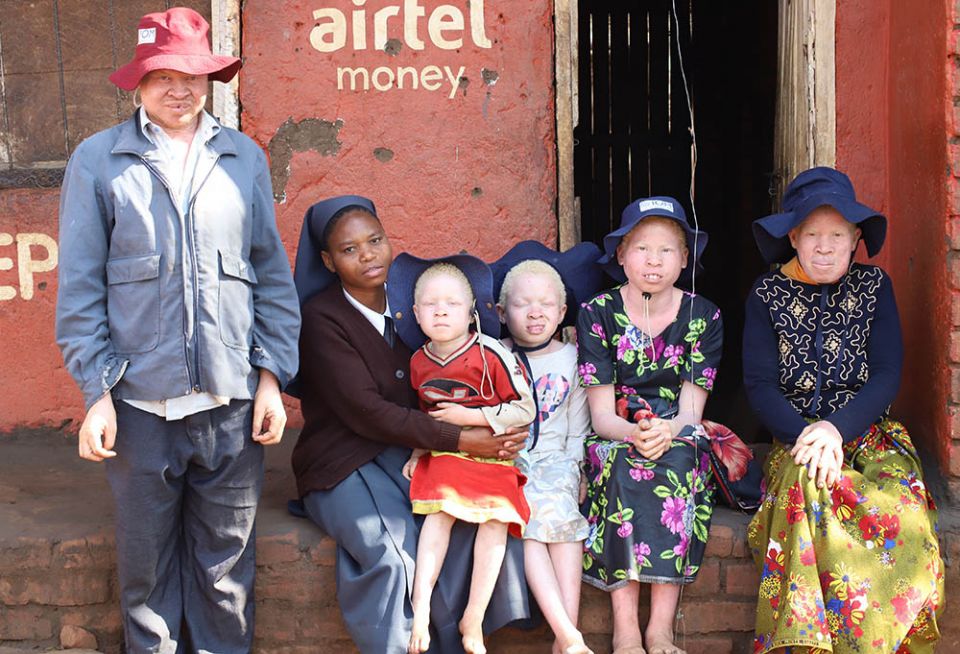
Mtendere, Malawi — "We are not safe here; people are hunting for our body parts. We keep on hiding when we see strangers coming to our village. It's time we sought asylum in the U.S."
These were the words of 35-year-old Loness Masautso, a woman living with albinism in this remote, deeply traditional corner of southern Malawi.
Masautso, whose husband and three children all have albinism, said they survived an attempted attack in December last year by people wanting to kill them for their body parts. She said people unknown to them and armed with knives appeared at her door at 8 p.m. after the family had eaten dinner and one shouted to others, "Money is here! Money is here! Money is here!" People with albinism are often referred to as "money" because their body parts can be sold illegally.
"We became so afraid and I knew we were going to die," said a teary Masautso, who lives in a small mud brick house. "My husband hid the children in a separate room, and then we started to shout until neighbors came out of their houses and caught one of the attackers." They later called the police, who arrested the man, she said.
Such attacks have changed the daily lives of people with albinism in this part of the world as many often live in constant fear for their lives. Children run away from strangers. Adults lock themselves inside their houses and hide under their beds when they see a stranger from afar. Local vigilantes accompany a few students going to school to ensure they are safe. Community members guard the adults with albinism as they work the farms. Their villages are also protected by vigilantes to ensure those with the genetic condition are not attacked, abducted or even killed.
Ali 8 CROP.jpg
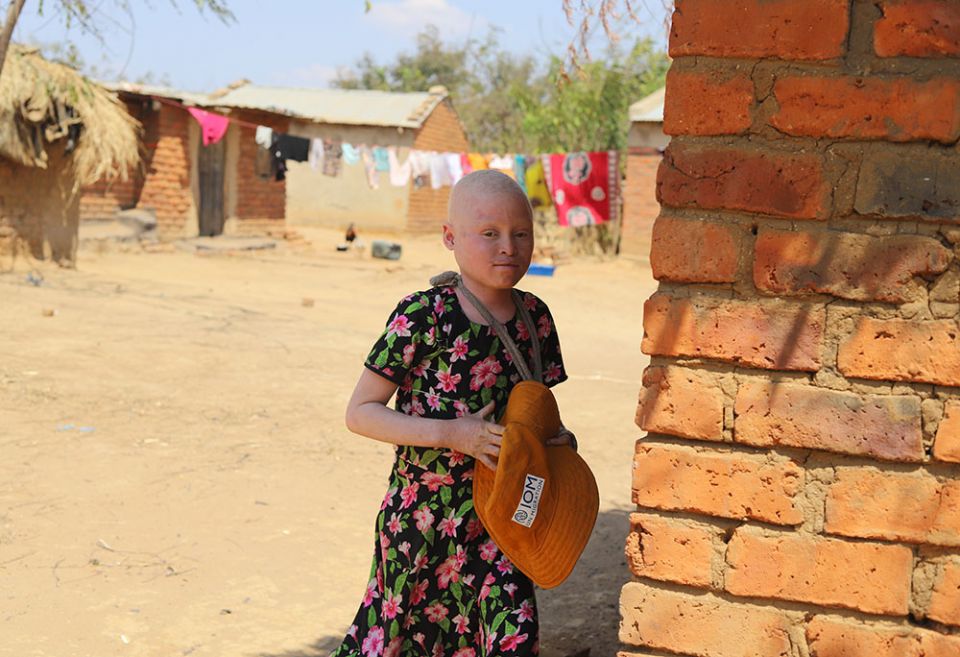
Catholic women religious in Malawi visit them every morning and evening and mobilize members of the surrounding communities to protect them from attackers. In addition, they work to open up access to livelihoods and dermatological, vision and other health care services.
Masautso's family is among thousands of families with albinism in the southern African nation who describe their homeland as a "hell" and are seeking asylum in the U.S. and Europe because of the persecution. Albinism includes a group of inherited disorders where there is little or no production of the pigment melanin, according to the Mayo Clinic. Melanin gives skin, hair and eyes their color and plays a role in the development of optic nerves. Reduced quantities or absence of melanin leads to vision problems for people with albinism.
People with albinism in Malawi continue to be targeted for their body parts, which, due to their whiteness, are believed to bring good luck and wealth. The attacks include killings, tampering with graves, attempted abductions and physical violence. The assaults and killings are said to be fueled by poverty and superstition, which lead those afflicted to live in fear of harm and denial of human rights such as education, health care, employment and family life.
The landlocked country has more than 134,000 people with albinism, representing 0.8% of the total population, according to the 2018 Malawi Population and Housing Census. Since 2015, more than 160 people with albinism have been killed in the country, and thousands of others have faced various human rights violations, according to media reports. Similar cases of violations are also being reported in neighboring Tanzania, Mozambique and Zambia.
Ali 7 CROP.jpg
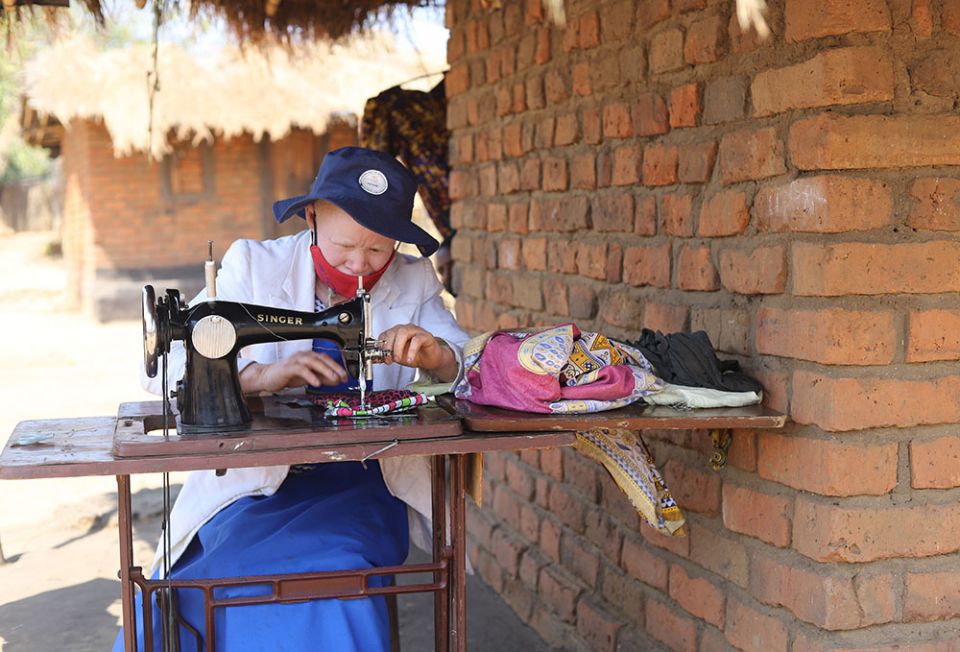
Religious leaders, local officials and elders told Global Sisters Report that witch doctors promote that body parts of an albino have magical powers to bring luck, including making someone rich or powerful, and that having sex with people with albinism cures diseases like HIV/AIDS, infertility and cancer. They said an entire human body of an albino can fetch up to $75,000, while an arm or a leg could bring about $2,000.
The illegal business is fueled by poverty, they said, adding that the majority of Malawians are poor and are looking for ways to come out of poverty. In April 2021, the small agrarian country was ranked the fifth poorest in the world, based on International Monetary Fund data.
"These people are being killed like animals because of lust for money," said Loyd Kuyenda, a village administrator overseeing Mtendere, a large village some 60 miles south of the Malawian capital of Lilongwe. "People with albinism have been forced to hide in their houses to avoid being murdered or kidnapped."
The widespread killing of people with albinism for their body parts and amputations of their limbs has prompted religious leaders, including nuns, to launch a campaign to educate the communities to abandon cultural beliefs and stop targeting albino people.
Advertisement
Advertisement
Teresian Sr. Beatrice Mbilima who leads the campaign, said people with albinism often face isolation and stigma for their entire lives and are denied their basic rights, such as the right to go to school, have access to health care services, get jobs and have a family.
"We are preaching the word of God to the people so that it changes their minds and [leads them to] abandon their belief in witchcraft," said Mbilima, noting that the susceptibility to witchcraft is widespread in rural Malawi. "As a church, we have the responsibility to provide religious teachings to people so that they can believe in God and not in witchcraft."
Mbilima and her congregation have been conducting awareness campaigns in southern Malawi by organizing public meetings and distributing flyers to educate the communities about the rights of people with albinism and dispel the myths surrounding their conditions.
"We teach people not to segregate [people with albinism]; rather they should see them as normal human beings as they are," she said, adding that her congregation carries out awareness campaigns at least every three months to ensure everyone gets the message. Mbilima said government restrictions and lockdowns due to the COVID-19 pandemic have slowed community sensitization to reduce myths and misconceptions around people with albinism.
residents of Mtendere 4 RESIZE.jpg
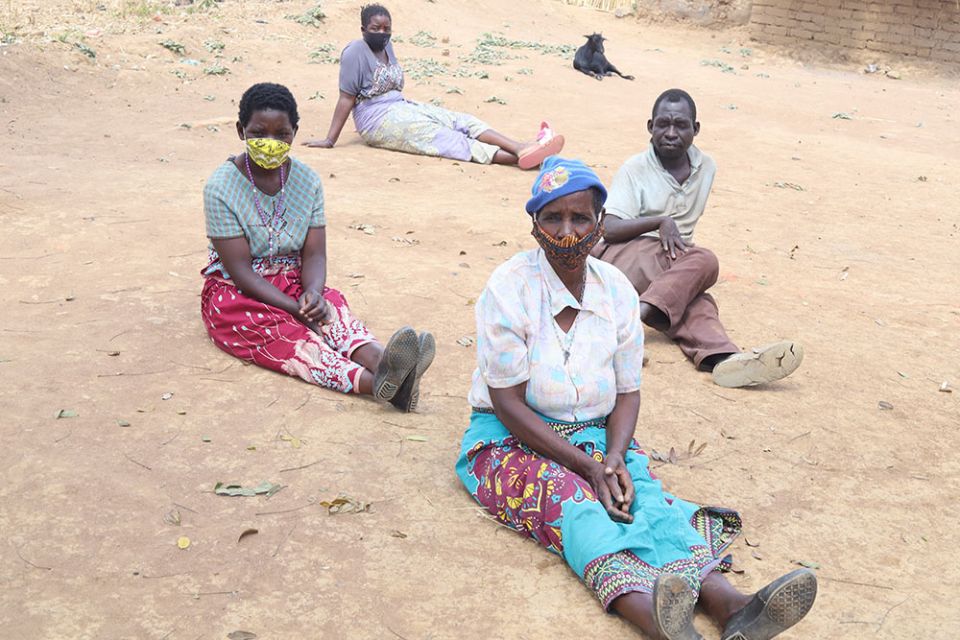
Sisters also run a health clinic in southern Malawi where they provide dermatology services and distribute sunglasses, cream, clothing, hats, shade and sunscreen to people with albinism. They have engaged the youth in various communities to guard houses of people with albinism to protect them from attacks.
"We are committed to protecting these people and ensuring they are safe," said Mbilima, whose congregation also provides hygiene kits and food items like grains, vegetable oil, maize flour, pulses and rice. "We have a plan to build them houses if we get the resources and sponsor their children to get education."
To end albino persecution in the country, some of the people living with albinism want the government to intervene and help religious leaders stop the ongoing atrocities against them. Musa Wiladi, 38, said the nuns and other religious leaders have tried to help them where they can, but the government needs to protect them, investigate and prosecute offenders, give people with albinism jobs and financial support.
"I grew up a very disturbed man. I was treated as if I was not a human being. People called me a ghost because they believed I had supernatural powers. Others told me that my mother was impregnated by a white man," said Wiladi, who is now married with three children without albinism. "I was forced to drop out of school because of my security. The government should take some measures to ensure the rights of people living with albinism are protected."
Ali 6 CROP.jpg
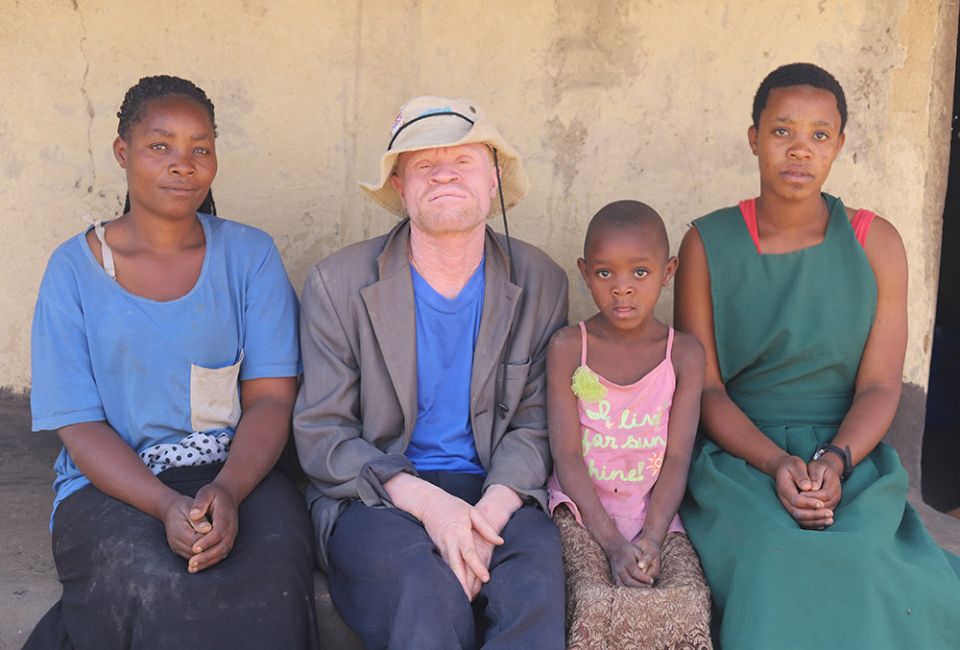
Still, some analysts say it is not easy to end these killings and abductions. One of the witch doctors from Tabora, a rural town in northwestern Tanzania, told Global Sisters Report that it's not easy to stop something that makes people rich and brings people out of poverty.
The witch doctor, who didn't want his name mentioned because of his safety, said people often receive albino limbs and organs from neighboring countries, including Malawi, which are used to bring good luck, wealth and political success. People who have risked undertaking this kind of business have been able to build better houses, buy good cars and invest in urban businesses, he said.
"It's true that those body parts of people with albinism can make someone rich, bring fortunes, and make one gain political power," he said. "If it weren't true, then people could have stopped all these killings. But they can't stop it because they know there are benefits."
Mbilima dismissed the witch doctor's belief, saying she has never seen anyone becoming rich because of trading organs of people with albinism.
"This belief that somebody else's body organs could give you wealth is really unfortunate and absurd," she said, adding that the belief gives them reasons to continue creating awareness so that people can change their attitudes. "Whenever I hear such stories, honestly, I always feel very bad because all of us are made in the image and likeness of God, and no one has the right to deprive another of life."
Ali 13 CROP VERT.jpg
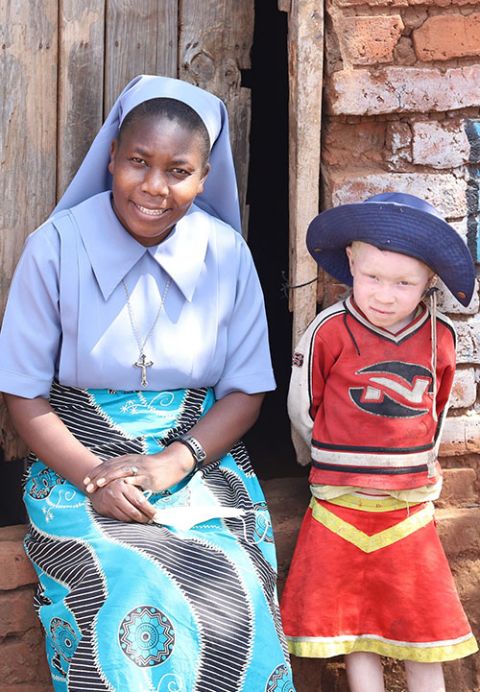
Catholic officials and human rights campaigners, who are also carrying out awareness campaigns on behalf of people with albinism, said the government needs to take necessary measures to prevent attacks, including murders, and discrimination against people with albinism.
Malawi's government has been slow to prosecute suspects accused of attacking and murdering people with albinism because police lack forensic skills, resources and legal training, activists and religious leaders contend. The majority of cases that have gone to court have failed because of flawed investigations and a lack of evidence, they said, concluding that security has not improved, leaving thousands of people with albinism vulnerable to all kinds of attacks.
"There are many cases that we are trying to push for their conclusion and ensure there is stiffer punishment that needs to be given to those violating the rights of others," Boniface Chibwana, the national coordinator of Catholic Commission for Justice and Peace of the Malawi bishops' conference, told Global Sisters Report in an interview in August. "The prolonging of some of these cases is making the perpetrators walk free, and they continue to commit the same crimes."
Chibwana said amputations and murders of people with albinism for their body parts were still happening across the country. Two weeks ago, for instance, the body of a person with albinism was found in a decomposing state in Blantyre, the second largest city in southern Malawi. The hands and legs had been cut off.
"If stiffer punishments could be given to those found culpable, then there won't be these killings and abductions," he said, noting that his organization has intensified its campaign focused on empowering local people with financial support, awareness and legal training on the rights of people with albinism.
Meanwhile, Masautso and her family still live in fear of persecution and violence, despite the efforts being undertaken by religious leaders and human right activists to protect them.
"I need to quickly move out of this place with my family," she said. "We are not safe, and death can knock on our door anytime."
Like what you're reading? Sign up for GSR e-newsletters!


